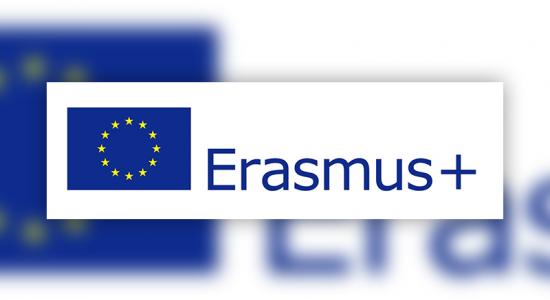
Erasmus+KA3 - CoVEs
The European Commission call for proposals EACEA 33/2019 aims to support the establishment and development of transnational cooperation platforms of Centres of Vocational Excellence (CoVEs) to connect Centres operating in a given local context at European level.
The transnational cooperation platforms will bring together CoVEs that:
– Share a common interest in specific sectors or trades (e.g. aeronautics, e-mobility, healthcare, tourism, etc.), or
– Develop together innovative approaches to tackle societal, technological and economic challenges (e.g. climate change, digitalisation, artificial intelligence, sustainable development goals, integration of migrants, supporting learners with disabilities/special needs, upskilling people with low skills and/or low qualification levels, etc.)
The platforms will create world-class reference points for vocational training. They will be inclusive and either bring together existing CoVEs in different countries, or expand the model by linking well-established CoVEs in one country with partners in other countries, that intend to develop CoVEs in their local eco-system, thus contributing to ‘upward convergence’ of VET excellence.
The CoVEs will adopt a bottom-up approach to excellence where VET institutions are capable of rapidly adapting skills provision to evolving local needs. They aim to bring together a set of local/regional partners such as initial and continuing VET providers, tertiary education institutions including universities of applied sciences and polytechnics, research institutions, science parks, companies, social enterprises, chambers and their associations, social partners, sectoral skills councils, professional/sector associations, national and regional authorities and development agencies, public employment services, etc.
Projects must provide evidence that they aim to:
– Establish strong and enduring relationships at both local and transnational levels, between the VET community and businesses, in which interactions are reciprocal and mutually beneficial, and
– Integrate activities, build reflexive relationships between the various activities and services, and
– Be firmly anchored into wider frameworks of regional development, innovation and/or smart specialisation strategies. These can be either existing strategies or being developed in the context of the project (describing how the project contributes to those strategies).
Partnerships
The partnership shall include at least eight full partners from a minimum of four Erasmus+ Programme countries (including at least two Member States of the European Union).
Each country must involve:
– at least one company, industry or sector representatives (e.g. chambers or trade associations), and
– at least one vocational education and training provider (at secondary and/or tertiary level.
One of the partners above will be the coordinating organisation, applying for the Erasmus+ grant on behalf of the partnership.
The Erasmus+ Programme countries are the following:
– The 28 Member States of the European Union: Austria, Belgium, Bulgaria, Croatia, Cyprus, the Czech Republic, Denmark, Estonia, Finland, France, Germany, Greece, Hungary, Ireland, Italy, Latvia, Lithuania, Luxembourg, Malta, the Netherlands, Poland, Portugal, Romania, Slovakia, Slovenia, Spain, Sweden, the United Kingdom;
– The non EU Programme countries: Iceland, Liechtenstein, Norway, Republic of North Macedonia, Serbia, Turkey.
For British applicants: Please be aware that eligibility criteria must be complied with for the entire duration of the grant. If the United Kingdom withdraws from the EU during the grant period without concluding an agreement with the EU ensuring in particular that British applicants continue to be eligible, you will cease to receive EU funding (while continuing, where possible, to participate) or be required to leave the project on the basis of the Article II.17.3.1(a) of the grant agreement.
Activities
Activities must start on 1 October 2020 or 1 November 2020. The duration of the projects is 4 years.
The project must include relevant deliverables linked to:
– at least 3 activities related to Cluster1 – Teaching and learning, and
– at least 3 activities related to Cluster2 – Cooperation and partnership, and
– at least 3 activities related to Cluster3 – Governance and funding.
Projects are required to apply EU wide instruments and tools whenever relevant.
They should also aim to adopt an inclusive dimension, by including actions that help address diversity and promote – in particular through innovative and integrated approaches – ownership of shared values, equality, including gender equality, and non-discrimination and social inclusion, including for people with special needs/fewer opportunities.
A particular focus will be on digital skills as they are increasingly important on all job profiles across the entire labour market, as well as skills to support the transition to a circular and greener economy to meet emerging professional needs for green skills and sustainable development.
Budget
The total budget earmarked for the co-financing of projects is estimated at a maximum of 20 million euros.
Financial contribution from the EU cannot exceed 80% of the total eligible costs.
The maximum EU grant per project is 4 million euros.
Deadline: 20 February 2020, 17.00 (Brussels time).
Read more here.
Live info session
An info session for all interested potential applicants will be organised on 5th November 2019.
The event will be webcast live here.
For further support, do not hesitate to contact the EACEA VET team at eacea-eplus-vet@ec.europa.eu.
